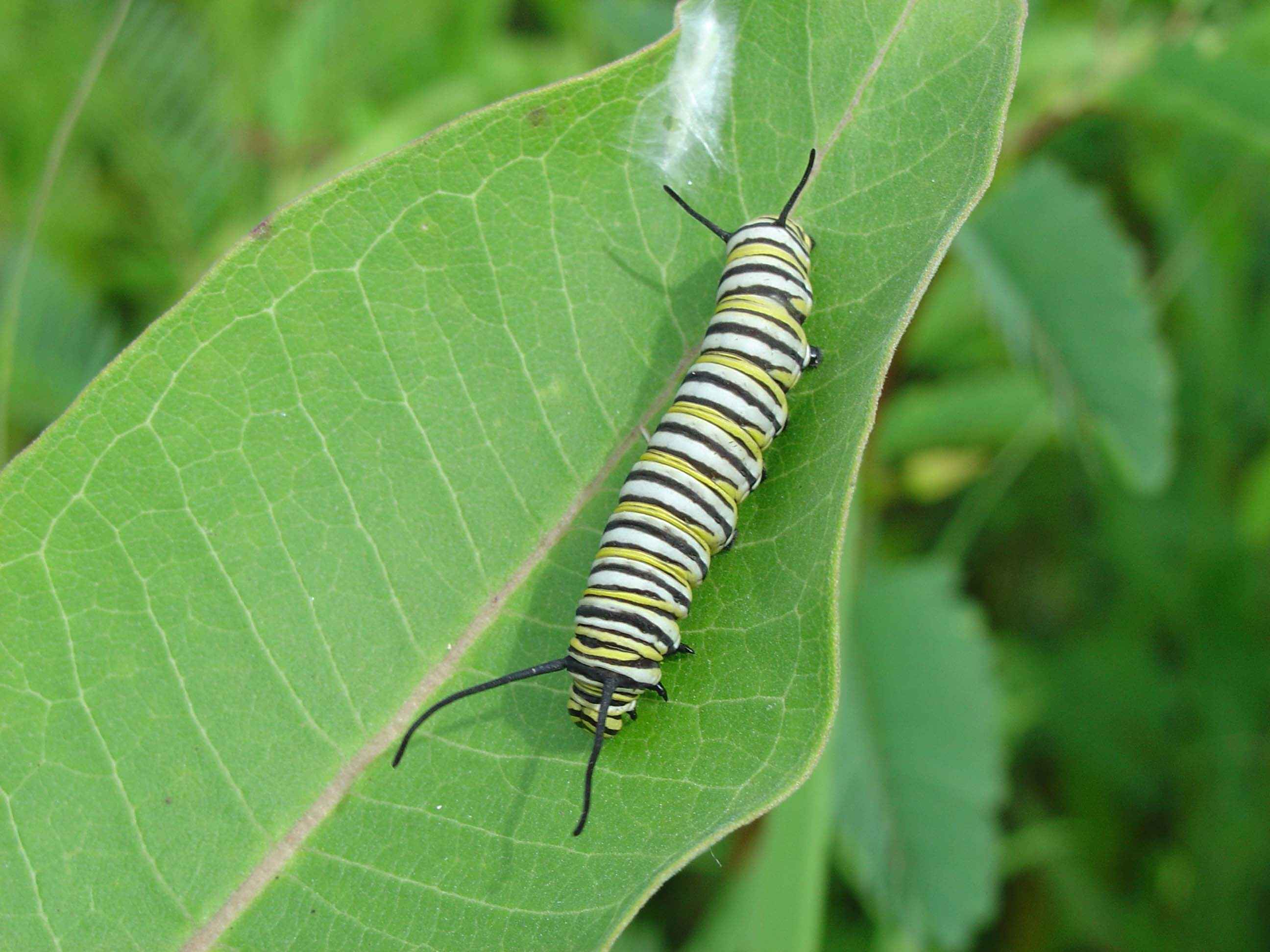Got Milkweed? Collecting Data about Milkweed to Inform Our Response to the Monarch Population Decline. July 11-13, 2017. St. Olaf College, Northfield, MN.
M onarch caterpillars only eat one kind of plant–milkweed. As monarch butterfly populations are declining and more people are planting milkweed, what is important to understand about this food source? This workshop introduces participants to a distributed research project designed to help students understand evolution and ecology through inquiry about milkweed plants while simultaneously gathering data to answer important scientific questions, such as: “What should we do to slow the decline of the monarch butterfly populations?” and “Does the origin of milkweed seeds affect their growth?”
onarch caterpillars only eat one kind of plant–milkweed. As monarch butterfly populations are declining and more people are planting milkweed, what is important to understand about this food source? This workshop introduces participants to a distributed research project designed to help students understand evolution and ecology through inquiry about milkweed plants while simultaneously gathering data to answer important scientific questions, such as: “What should we do to slow the decline of the monarch butterfly populations?” and “Does the origin of milkweed seeds affect their growth?”
Participating institutions will plant milkweed seeds from local and non-local po pulations and gather data on milkweed growth annually in spring and fall to determine whether milkweed populations are locally adapted, meaning it would be beneficial to plant locally-sourced milkweed genotypes, or whether there are certain superior milkweed genotypes that perform better in all locations. Learning opportunities align well with Life Science Next Generation Science Standards at both middle and high school levels. The project requires a one-time collection of common milkweed seeds from a naturally occurring (not planted) local population, space and time to plant 20 or more milkweed plants, and a commitment to work with students annually to follow specific protocols for data collection in the spring and fall for multiple years. Optional extensions for data collection during the summer are in development.
pulations and gather data on milkweed growth annually in spring and fall to determine whether milkweed populations are locally adapted, meaning it would be beneficial to plant locally-sourced milkweed genotypes, or whether there are certain superior milkweed genotypes that perform better in all locations. Learning opportunities align well with Life Science Next Generation Science Standards at both middle and high school levels. The project requires a one-time collection of common milkweed seeds from a naturally occurring (not planted) local population, space and time to plant 20 or more milkweed plants, and a commitment to work with students annually to follow specific protocols for data collection in the spring and fall for multiple years. Optional extensions for data collection during the summer are in development.
Details: We welcome new and returning participants from across the native range of common milkweed. We especially encourage participants from New England and Midwest regions of the United States and educators who work with students under-represented in the sciences. We have reached capacity for in-person attendees, but you can still apply to virtually participate in parts of the workshop. You can also sign up to receive an email link to view recordings of the sessions. Certificates for CEUs will be available to those who participate in person or virtually. Groups of teachers from the same school or district are encouraged to apply.
Apply Now! Applications will next be reviewed during the week of May 8.
Tentative Schedule: Items in blue italics are suitable for virtual participation.
Day 1. Tuesday, July 11 (starts mid-day to accommodate travelers)
Question of the Day: What should we do about declining monarch populations?
- Lunch 12-1
- Welcome and Introductions 1:00
- Monarch Decline+Possible causes 1:30-3:00
- Milkweed: stations and field 3-5
Day 2. Wednesday, July 12
Question of the Day: If we plant milkweed, does it matter where the seeds come from?
- Field Plot measurements, data collection, and data entry 9-12
- Lunch 12-1
- Evolution and Local Adaptation 1-2:45
- Supporting Information 3-4
- Other Protocols: Seed collection, site selection/preparation, germination, etc.
- Argumentation and Data Jam Introduction
- Time for lesson planning, modification, questions; order needed supplies. 4-5
Day 3. Thursday, July 13
- Making Predictions; Cleaning and Analyzing data 9-11
- Group work time: Argumentation and Data Jam 11-12
- Lunch 12-1 (evaluations)
- Poster session/Data Jam 1-3:00
